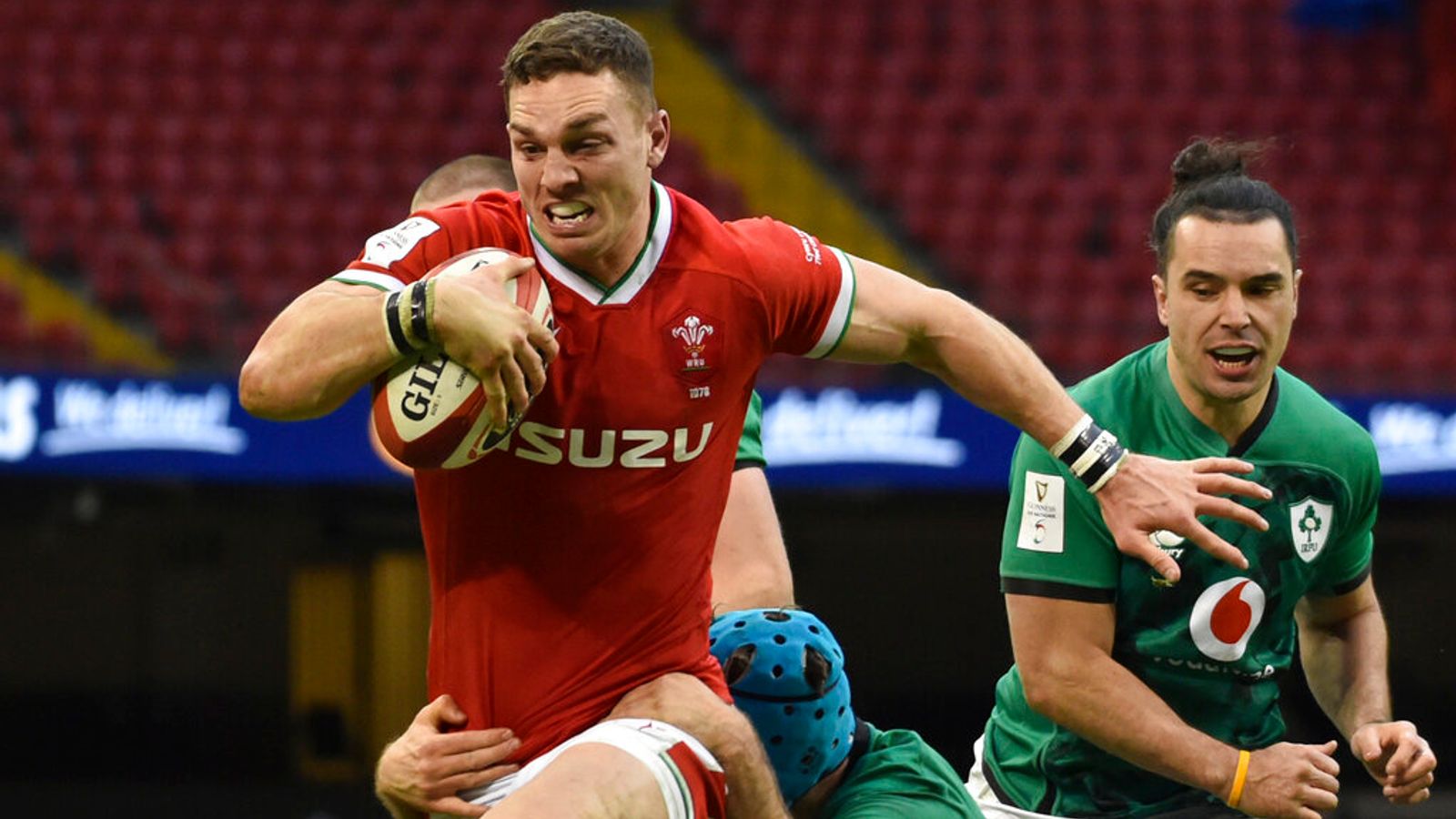A decision has not yet been made on whether the Six Nations rugby matches can go ahead in Wales next month with crowds attending, the country’s first minister has said.
Wales are due to host Scotland at Cardiff’s Principality Stadium on 12 February after being away in Ireland on 5 February for the opening weekend.
But restrictions imposed in Wales from 26 December mean sporting events in Wales are limited to 50 spectators.
No end date for the restrictions has been officially set.
Addressing the potential fate of next month’s Six Nations tie, Mark Drakeford said the decision about where matches will be held is “for the Welsh Rugby Union to make, not the Welsh government”.
After grappling with high COVID case rates in recent weeks, he said Wales has to “see the tide turn on the Omicron wave” as numbers are still rising.
COVID-19: Health Secretary Sajid Javid says there will be a ‘rocky few weeks ahead’ for NHS as two major incidents declared
COVID-19: Workers at North Yorkshire County Council asked to take on social care roles amid staff absences
COVID-19: Top holiday destinations revealed as easing of UK travel restrictions sparks bookings surge
“If the model is accurate, we see those numbers coming down – reasonably rapidly as they have risen – then we will be in a position to see whether it is safe to allow greater social mixing,” he told the Welsh government briefing on Friday.
“That’s what we are looking at…”
Wales’ current restrictions to remain due to soaring Omicron cases
Mr Drakeford appeared to have put his faith into the Welsh Rugby Union (WRU) to decide where matches will be held next month.
He said: “It was the Welsh Rugby Union that decided to cancel a match between Wales and Scotland at the very start of the pandemic before the government was asking them to do that.
“It was the Welsh Rugby Union that put the Principality Stadium available to be a Nightingale hospital, and it was the Welsh Rugby Union that very successfully ran four internationals in Cardiff during the autumn season.”
He acknowledged that the WRU have “balanced their obligations as a business” as well as playing their part in helping Wales stay safe throughout the pandemic, and appreciated their efforts.
Matches could be held outside Wales
The first minister also said he has no problem with the decision of the Welsh RFU to explore hosting Wales’s Six Nations home matches outside of the country due to the current measures in place.
He said: “I make no criticism of the WRU for exploring all the options that are available to them.
“They are a business and as a responsible business it seems to me that they are bound to look at all the different possibilities that are there in front of them.”
He continued: “Whether they will choose to go ahead and play games elsewhere with the undoubted risks that that would bring, were we to be still in the eye of the storm of coronavirus, I think is, you know, a very debatable question.
“But whether I have any problem with them looking at the options that they have available to them, no I don’t.
“I think that it is perfectly legitimate for them as a multimillion-pound organisation that has to think of its business as well as its sporting interests.”
Wales were crowned the Guinness Six Nations champions after Scotland beat France in the final game of the Championship in Paris last year.
Attack on Boris
Mr Drakeford once again aimed an acerbic attack on Prime Minister Boris Johnson, saying England is a “global outlier” in the fight against the Omicron wave because of its anti-restrictions stance.
He said: “In England, we have a government that is politically paralysed, with a prime minister who is unable to secure an agreement through his Cabinet to take the actions that his advisers have been telling him ought to have been taken.
“And even if he could get his Cabinet to address them, he can’t get his MPs to agree them.”
Subscribe to the Daily podcast on Apple Podcasts, Google Podcasts, Spotify, Spreaker
He said England is one of the only countries in Europe and the rest of the world not taking action to protect its population.
“The real question is, why is England such a global outlier, in the way in which governments elsewhere are attempting to protect their populations from coronavirus?” he said.
“The political contrast between Wales and England is this: here in Wales we have a government that is capable of acting and determined to act when it is necessary to protect our population.”
Wales cases still high
As of Friday, Wales reported 7,915 new COVID cases and a further 21, deaths – with cases slightly down from the 9,212 reported a day earlier.
Based on the seven days up to 1 January, the latest seven-day infection rate across Wales has risen to 2,228.5 – up from 2,133.4 recorded on Wednesday and the highest figure at any stage of the pandemic.
Infection rates in each local authority have also risen, with Blaenau Gwent having the highest rate in Wales for the seven days between 26 December and 1 January, with 2,945.8 per 100,000.
This was followed by Merthyr Tydfil with 2,902.6, and Rhondda Cynon Taf with 2,884.4.






















